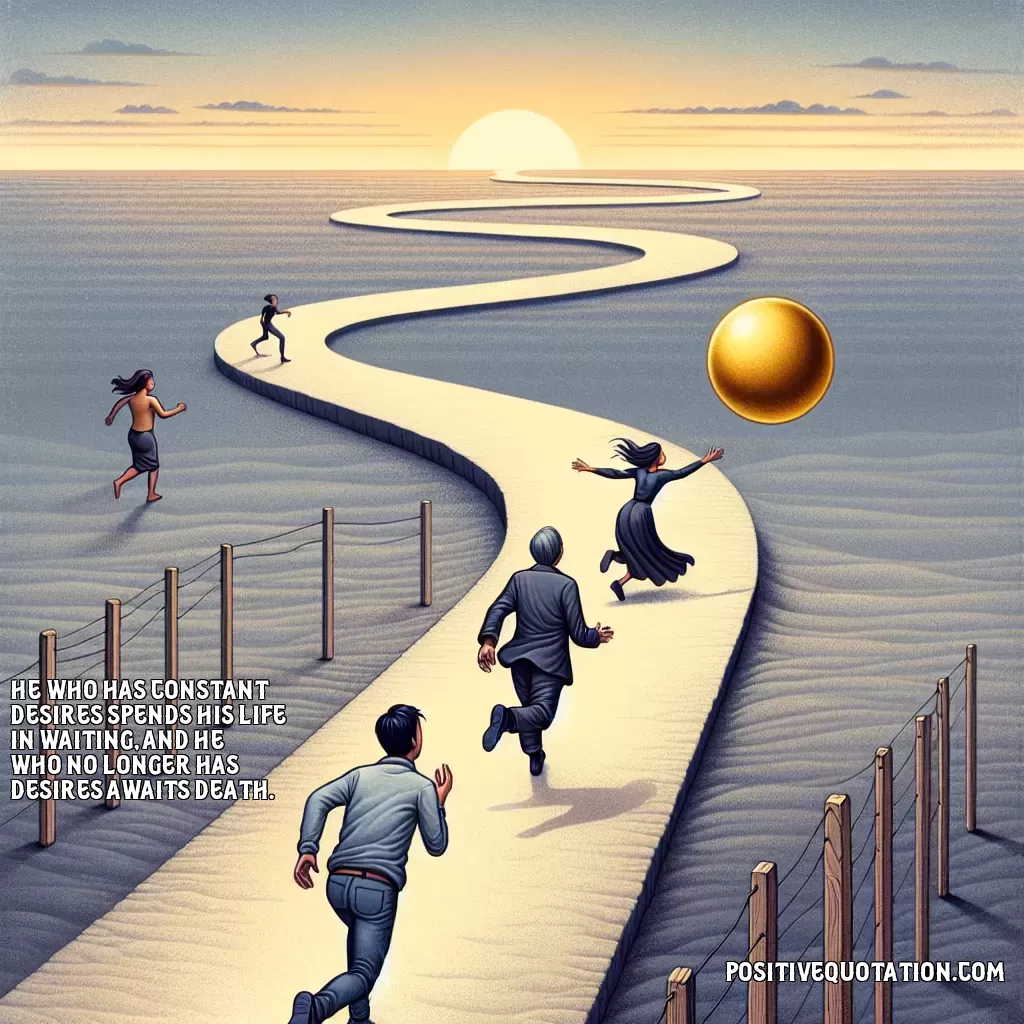
He who has constant desires spends his life in waiting, and he who no longer has desires awaits death.

He who has constant desires spends his life in waiting, and he who no longer has desires awaits death.
This quote reflects on the nature of desire and its impact on our lives. The first part suggests that a person with continuous desires is perpetually in a state of anticipation, always longing for something that remains out of reach. This implies that their life can be characterized by a constant sense of unfulfillment and waiting for satisfaction. The second part of the quote presents a contrasting perspective: someone who has relinquished all desires may find themselves in a state of resignation, merely awaiting death. This suggests that without desires, there can be a lack of motivation or engagement with life, leading to a passive existence. Overall, the quote highlights a paradox of human existence—desire drives us to actively pursue our goals but can also lead to endless waiting. Conversely, the absence of desire may lead to a disconnection from life itself. It emphasizes the delicate balance between ambition, fulfillment, and acceptance of mortality.
Quote By: Khalil Gibran